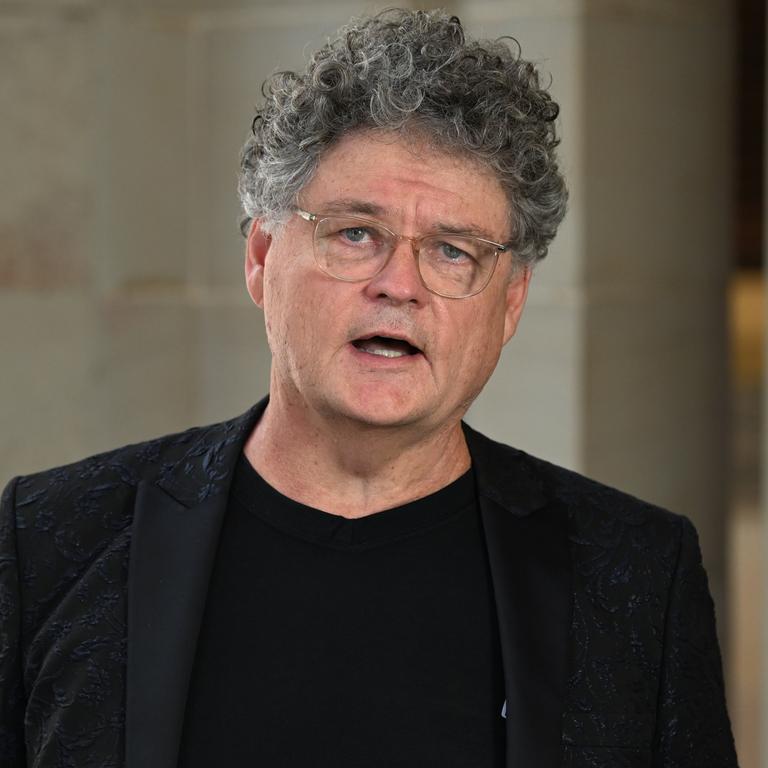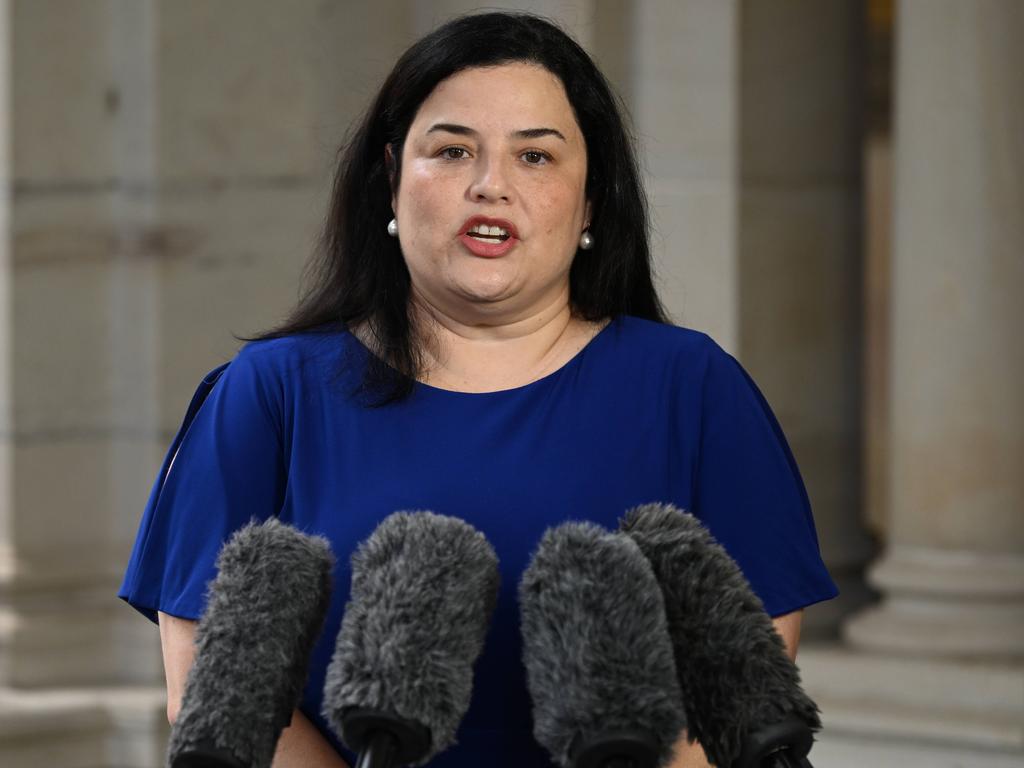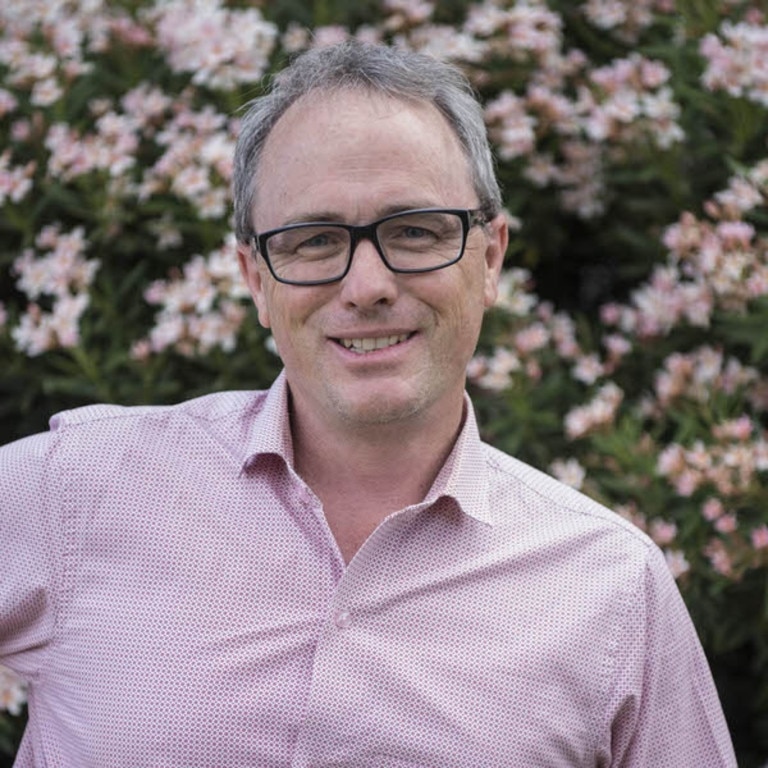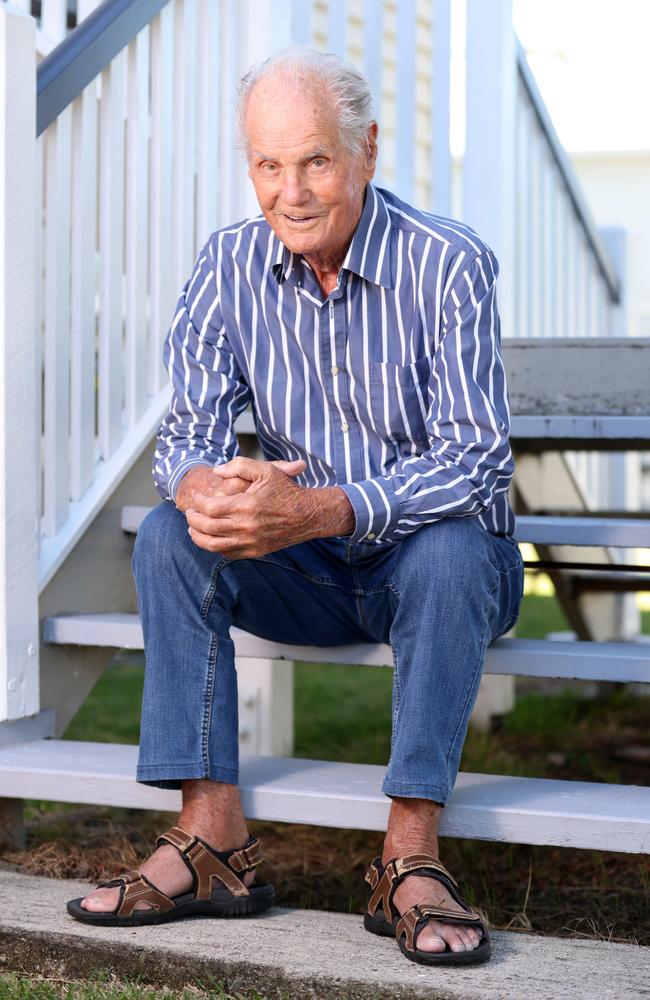Queensland’s median life expectancy lowest of all states
Queenslanders are dying years earlier than people in any other state, with confronting data shocking the state’s leading doctors. SEE HOW YOUR REGION RATES
Queenslanders are dying years earlier than people in any other state, in a shock trend that exposes a new hidden health crisis.
And data shows that healthcare chiefs would be aware that the state’s median age of death has failed to keep pace with the rest of Australia as far back as 1999.
The confronting data has shocked Queensland’s leading doctors, who are questioning why action on lifespan has not been a priority for the government over the last 24 years.
Chief health officer John Gerrard in this year’s annual report emphasised that mortality provides an indication of the effectiveness of public health strategies.
Australian Bureau of Statistics data from 2011-21 consistently shows that year after year Queenslanders are dying earlier than any other Australians, except for Territorians.
In 2021 the median age of death was 80.8, while South Australia recorded 83.2, Victoria 82.8 and NSW 82.5.
Queenslanders are dying a year and four months earlier than the median Australian at 82.1 — a worse outcome that in 1999.
In 1999 Victoria recorded a median age of death as 78.2 and Queensland 77.4.

Dr Bruce Willett, Queensland chief of the Royal Australian College of General Practitioners, told The Courier-Mail he was shocked by the ABS data and said these numbers have been kept well under wraps.
“It’s surprising there has not been some major push by Queensland Health to turn around this trend, it’s certainly been evident for a long time when you inspect the numbers.
“There is the perception that the Sunshine State is the place for great weather, healthy lifestyle and lots of fresh food but we know that is not true across the population,” Dr Willett said.
“Social determinants play a big part in how long people live.
“Many Queenslanders survive in disadvantage or isolated from services.
“There are long waiting lists for life-saving screenings and procedures, and continued care with a family general practitioner is dying out fast.
“Also getting an appointment with a mental health specialist takes too long.”
The GP said that obesity and unhealthy lifestyles were an issue in areas of Queensland.
“Getting hold of fresh produce at a reasonable price in certain areas is impossible, and people end up with little alternatives to fast food,” he said.
Six of the 10 most disadvantaged local government areas in Australia have been identified in Queensland in the Socio-Economic Indexes for Areas census data.
Dr Willett said serious mental illness reduced life expectancy by as much as 20 years, and if a patient saw the same general practitioner for life that could add a decade.
“These are all things that make a difference to how long people live,” Dr Willett said.
Nationally screening programs for bowel, breast, cervical and lung cancer screening service are all cut off at 74.
In Queensland patients can be left waiting for months for a lifesaving colonoscopy and many other procedures that prolong life.
The latest data from Prostate Cancer Foundation of Australia shows the state saw a 572 per cent increase in the number of prostate cancer cases from 705 in 1982 to 4741 in 2018 – outstripping population growth – and predictions show numbers will continue to soar.
From 2016-20 the leading causes of death was coronary heart disease, dementia cerebrovascular disease lung and prostate cancer.
Australian Medical Association Queensland president Maria Boulton was concerned by the trend, calling on the government to urgently fund multidisciplinary, collaborative health models in general practice.
“It is alarming that data says Queenslanders are dying two years earlier than their interstate cousins,” Dr Boulton said.

“We know chronic disease is killing more people than ever.
“If we want to live longer, healthier lives, we must invest more in prevention and early intervention and that starts with general practice.
“But lack of access to high-quality general practice is widespread, especially in our rural and remote towns.
“The Government must support more doctors to become GPs and reduce the burden on practices, starting with a payroll tax exemption.”
Rural doctors president said that people in the bush were finding it difficult to find continuity of care as rural general practice struggles to survive.
Rural Doctors Association Queensland president Matt Masel said: “Federal budget boosts to general practice access will help a little, but especially in rural sites and the First Nations health sector, the State Government also has a role to ensure affordable access to general practice, and primary care more broadly.”
Dr Masel said a strong hospital sector, beginning with safe, accessible maternity services was also critical.
Despite the data a spokesman for Queensland Health told The Courier-Mail that Queenslanders’ life expectancy is increasing and is among the highest in the world.

“We are committed to helping Queenslanders live long and healthy lives, which is why are investing in initiatives to deliver an exceptional level of healthcare, prevent disease and reduce illness,” he said.
“This includes spending $23.6 billion on our people, infrastructure and services to meet demands on the health system, implementing our HealthQ32 strategy to deliver better in-hospital, preventive and community health services and enforcing tough new anti-smoking and illicit tobacco laws.”
Queensland Health said that as part of its 2022-23 budget it was spending $1.645 billion on mental health and alcohol and other drug services, and about $15 million to support the delivery of long-term planned care recovery and reducing waiting lists.
“Our hospitals continue to outperform other jurisdictions on elective surgeries treated in time, despite increased pressure from a growing and ageing population, more complex and chronic health conditions, workforce challenges, and declining private health cover,” the spokesman said.
“Our new Workforce Attraction Incentive Transfer Scheme, ongoing investment in telehealth services and our Patient Travel Subsidy Scheme are helping Queenslanders in regional, rural and remote areas access quality health services.”

ARMY VET’S SECRET TO A LONG LIFE
The secret to a long life is a bit of hard work, good food and a decent sense of humour according to 100-year-old Brisbane World War II veteran Jim Grebert who has shared his tips to longevity and happiness.
The self-labelled Aussie battler and family comedian jokes that his secret is much simpler than one may think.
“Keep breathing,” Mr Grebert said as he pretended to be a “doddery old person” by hunching over and shaking his hands before quickly standing upright with ease.
“I think we had a pretty basic diet, no fancy food, that’s all I reckon. Hard work and good food kept me this long,” he said.
Mr Grebert was born in Millaa Millaa near Cairns on a dairy farm where he learnt to milk a cow at five and rode horses to school.
He now lives by himself in his own home, takes daily strolls through his neighbourhood and reads the paper everyday.
“You can’t stop otherwise you’ll rust up,” Mr Grebert said.
Amazingly, Mr Grebert isn’t on any regular medication and only requires a walking frame for safety purposes.
“No medication or no painkillers,” Mr Grebert’s granddaughter Helen Bishop said.
“I tried to get him to take a Panadol once and he said he didn't want to get hooked.”
“There’s no good living on dope is there,” Mr Grebert replied.
In keeping with his comedian status, when asked what his secret to happiness was after all these years he replied with, “get someone to tickle you”.
“I’ve got no worries, I’m being well looked after, I’m extremely lucky when I look around,” he said.





